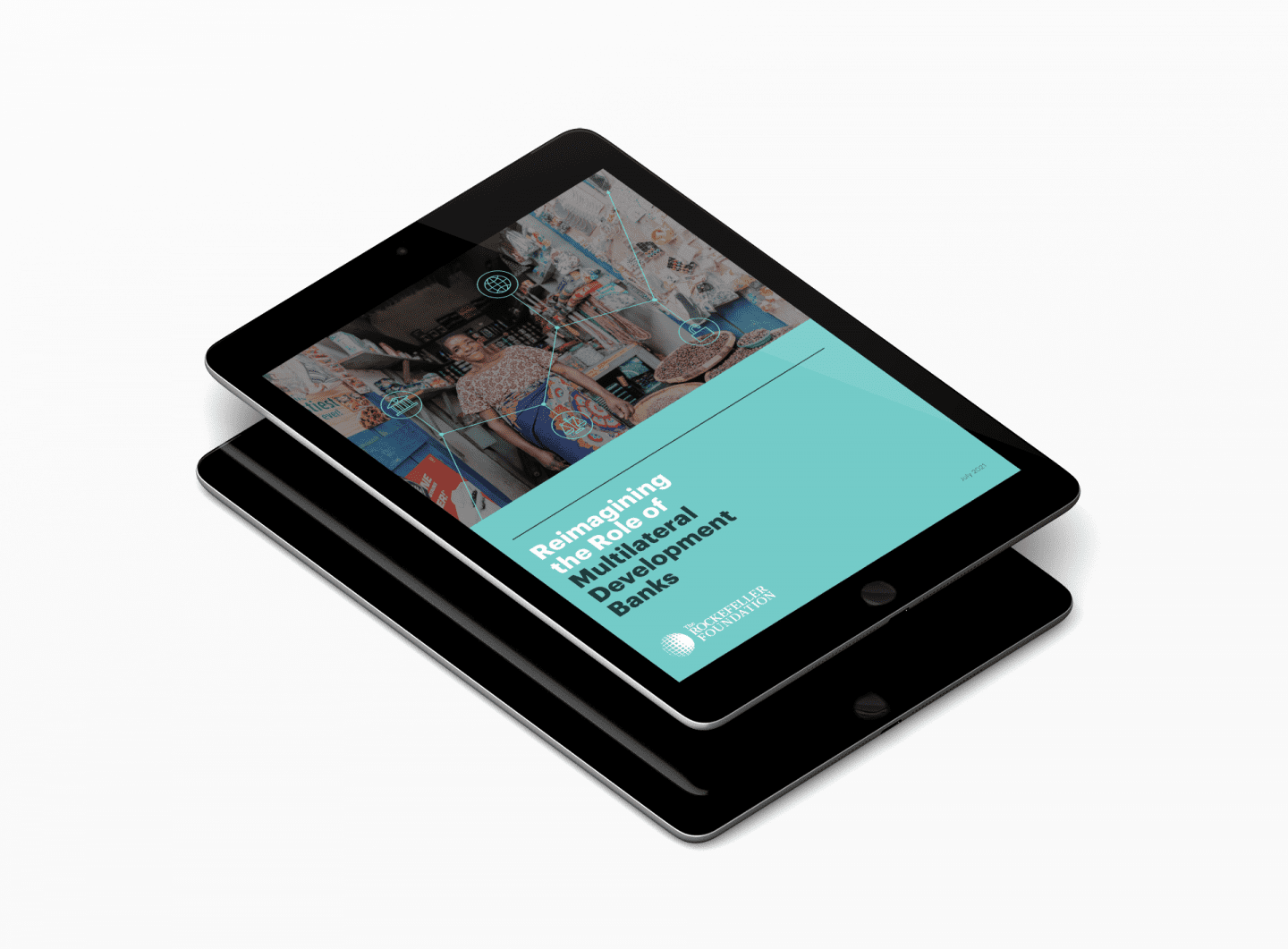As prepared for delivery on Friday, February 18, 2022 in Munich, Germany
https://t.co/UD5x767dfg
— The Rockefeller Foundation (@RockefellerFdn) February 18, 2022
Thank you, Ottilia. And hello, everyone.
As we sit here today, two things are true.
First, our multilateral institutions have taken extraordinary steps to respond to the pandemic’s economic crisis in developing countries.
Second, these extraordinary actions have not been enough to avoid a great divergence between the wealthier nations on their way to recovery and lower- and lower middle-income countries with an 11 percent Covid vaccination rate, 240 million people pushed into poverty, and an unfolding debt crisis.
Based on 2020 data, we estimate low-income nations need 24 to 30 percent of their GDP to respond to and recover from the pandemic’s health and economic crises. But with interest rates rising, their external debt outstanding has grown to more than two-thirds of GDP.
This great divergence — as food and energy prices rise, democracies backslide, variants break out, and the climate crisis bears down — presents a systemic threat to our collective global security.
Eighty years ago, dozens of nations came together around the Atlantic Charter, which was based on the idea that an inclusive recovery to World War II would help prevent the next war.
Today, we need to think and act the same way, and agree to a new Covid Charter to finally deliver a just, inclusive, and green recovery from the pandemic.
A Covid Charter would need to include extraordinary commitments from all of us — from all of society, not just our multilateral agencies.
Developing countries need to be able to mobilize a greater share of their GDP for real investment at home. To do so, they need urgent action on debt relief and instruments that enable low-cost, long-duration borrowing.
Advanced economies need to make far greater contributions, including fully funding the pandemic response and pandemic prevention. This is simply the most cost-effective global economic and security investment possible — and we need accountability around results.
Shareholders of multilateral institutions could also reimagine global economic cooperation, embracing ideas like the G20’s capital adequacy review to free up as much as a trillion dollars in additional lending.
And private sector and philanthropic partners need to do their part, too, including in public-private partnerships, to scale innovations in finance and technology so they reach everyone, everywhere.
Two important examples of what’s possible launched at COP26: the Glasgow Financial Alliance and the Global Energy Alliance for People and Planet. We need even more of these partnerships.
Humanity faces a decision, between a future of fear and want and a future that’s free, secure, and prosperous for all.
Everyone here in Munich, at NATO headquarters, in our respective capitals, at the G7 in the Alps in June, and the G20 in Bali in November, needs to remember that this divergence poses a massive security risk to all of us.
In the weeks, months, years ahead, it will manifest into real crises.
Eighty years ago, our predecessors met their moment. It’s up to all of us today to meet ours.
Thank you.
# # #
Featured Update
- FEATURE
Reimagining the Role of Multilateral Development Banks
As the world seeks an end to the Covid-19 pandemic and to start a recovery …
SEE MORE